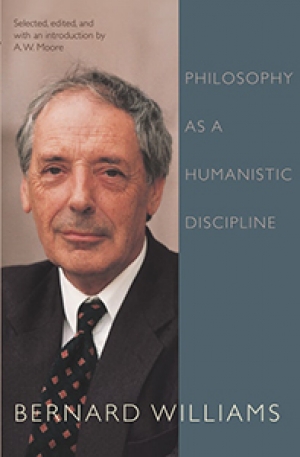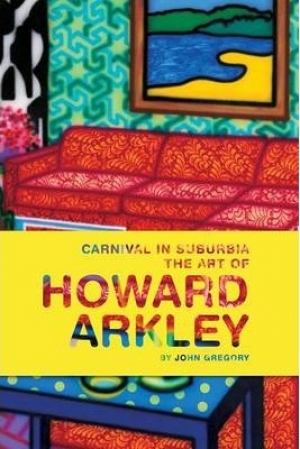Archive
Diary | '2006 - What the Heck!' by Chris Wallace-Crabbe
Memory is actually anxious to be heard.
A.F. Davies
What a year, and how lucky we are that our country can only play a timid, cringing, subservient role in Iraq – which is not at all to disparage the soldiers we send there. It must be a bastard of a job for those young men, at the accursed interface.
February 6: We fly to Hobart for our Coles Bay holiday, pick up a car and gradually find Sarah and Gordon’s evasive house on its steep hill. The following morning he starts me off with a long stiff walk over the mountain slopes: easier at his age. But I could eat a horse afterwards, were that required.
... (read more)'Making the World Safe for Diversity: Forty Years of Higher Education' by Glyn Davis | Inaugural ABR/Flinders University Annual Lecture
If we cannot end now our differences, at least we can make the world safe for diversity.
President John F. Kennedy, Address to the American University, Washington DC, 10 June 1963
In March 1966 the first students arrived at Flinders University. They were typical of their time. Men outnumbered women two to one. Most lived at home with their parents, their background overwhelmingly middle class. A survey in the first years of the new institution confirmed that Flinders students were not politically radical. A slim majority indicated support for the government of Harold Holt. Only a handful opposed American and Australian involvement in Vietnam. If conservative about political change, Flinders students did not forgo commencement day pranks, with a mock Russian submarine being pushed into the university lake. Four decades ago, most students starting at Flinders were destined for teaching or the public service.
... (read more)Diary | ‘2007 - about must and about must go’ by Chris Wallace-Crabbe
January 5: Planning for the Australian Poetry Centre (APC), thanks to the largesse of CAL; we’ll be in ‘Glenfern’, the handsome Boyd/a’Beckett house in St Kilda. Otherwise I’m feeling fit as a whippet, unlike Peter Costello.
January 17: Drove to windy Ballarat for Jan Senbergs’s drawings, David Hansen keeping us wittily diverted – the drawings, after 1992, suddenly very good, as Jan’s crowded Middle Park studio had given him cramped interiors, away from surreal cities. Out in the street, I saw someone who resembled Paul Kane, and uttered a tentative ‘Paul?’ – there they were, Paul and Tina, far from New York – so they persuaded us to drive north, coming to side roads that, like Donne’s pursuit of truth, ‘about must and about must go’. It perched on the bald head of an old volcano, in the full tug of wind: ‘The council engineer said we had to chain it to the hill.’
... (read more)An innocent replies
Dear Editor,
I agreed with most of Neal Blewett’s stimulating review (‘Innocent abroad’, December 2006–January 2007) of my autobiography, A Thinking Reed. I leave it to others to judge the accuracy of his character analysis and pairing me with Pauline Hanson.
... (read more)Sean Scalmer reviews 'The New Individualism: The Emotional Costs of Globalisation' by Anthony Elliott and Charles Lemert
Writings on globalisation have so far been of three principal types. First came the fables of discovery: bold, confident and romantic. Next came the stories of resistance: variously decrying the consequences of the new order, or denying that there was anything particularly novel about this globalisation malarkey. More recently, however, we have entered the age of elaboration. These fresher writings extend the now familiar idea of globalisation onto new terrains. Just as concepts such as ‘space’, ‘postmodernism’ and ‘the body’ were once taken up by earnest specialists, so the idea of ‘globalisation’ is now used to revive tired topics and to attract jaded publishers. Bookshelves groan under the weight of fresh volumes promising to disclose the secrets of ‘globalisation and food/sport/religion/sex/politics etc.’. Thus the concept has itself been exported and capitalised on a remarkable, networked industry. Some of this work is opportunistic and shallow. Fortunately, however, Anthony Elliott and Charles Lemert’s entry to the field (which might be retitled ‘Globalisation and Individualism and Emotions’) attempts to say something new, serious and important.
... (read more)In this tongue-in-cheek version of world history, Jesus Christ was originally baby Warren, until a celebrity representative came knocking at the manger door to help spin Mary’s unlikely tale of immaculate conception. Jonathan Biggins has examined world events from an Australian perspective, from the dawn of time, when God beat out Satan as chairgod in a narrow recount, to the reign of the pioneering environmentalist Robin Hood, to a rather subdued meeting of the Millenium Doomsday Cult. Through the imposition of modern bureaucracy onto historical events, As It Were lambastes the red tape and political correctness that stifle modern society. We discover that the works of Dickens do not translate well to adaptation by magical lantern, since there are not enough prospects for sequels; Monet is blighted by the cost of absinthe, as the tax auditor refuses to allow it as a tool of trade, and the first run of Kitty Hawk is delayed while the Wright Brothers apply to occupy limited airspace.
... (read more)Christopher Cordner reviews 'Philosophy as a Humanistic Discipline' and 'The Sense of the Past: Essays in the history of philosophy' by Bernard Williams
Bernard Williams began his philosophical life as the enfant terrible of mainstream English philosophy. In 2003 he died its most eminent contemporary figure. Williams was White’s Professor of Moral Philosophy at Oxford from 1990 to 1996, and a professor at Berkeley from 1988 until his death. Both these books are collections of essays, nearly all published previously, but many not easily accessible. In addition to three general essays about classical Greek philosophy, The Sense of the Past has essays on Socrates, Plato and Aristotle; and then on Descartes, Hume, Henry Sidgwick, Nietzsche, R.G. Collingwood, and Wittgenstein. The essays in Philosophy as a Humanistic Discipline are collected under the headings of ‘Metaphysics and Epistemology’, ‘Ethics’, and ‘The Scope and Limits of Philosophy’. In both volumes, the essays range across Williams’s philosophical life, affording a picture both of his recurring preoccupations and of the evolution of his concerns.
... (read more)John Button reviews 'The Victorian Premiers 1856–2006' edited by Paul Strangio and Brian Costar
Gough Whitlam was sometimes naughty. Descending in a crowded lift from a conference attended by a number of state parliamentary delegates, he looked down on his fellow passengers and growled ‘pissant state politicians’. It was the sort of remark he liked to get off his chest. In a more deliberative mood, Whitlam, in his 1957 Chifley Memorial Lecture, wrote of state parliamentarians in the following terms: ‘Much can be achieved by Labor members of the state parliaments in effectuating Labor’s aims of more effective powers for the national parliament and for local government. Their role is to bring about their own dissolution.’ These remarks reflect a widespread dissatisfaction with Australia’s ‘colonial’ constitution and with the division of powers between the three tiers of government. The Whitlam government favoured increased powers and responsibilities for both Canberra and local government.
... (read more)Sarah Thomas reviews 'Carnival in Suburbia: The Art of Howard Arkley' by John Gregory
The publication of a third major book on Howard Arkley begs the question: does he deserve such attention while other Australian artists of his generation and significance remain invisible on bookshop and library shelves? Has Arkley’s untimely and sensationalised death in 1999 been the main driver behind his broad appeal, or is he an artist who warrants further critical investigation? John Gregory’s impressive book, Carnival in Suburbia: The Art of Howard Arkley, proves unquestionably that the latter is the case, and tackles some of the myths that have been perpetuated, especially since the artist’s death.
... (read more)Alan Atkinson reviews 'Colonial Ambition: Foundations of Australian democracy' by Peter Cochrane
This book is an account of politics in Sydney during the 1840s and 1850s. Occasionally, the story reaches into the depths of urban life, with descriptions of what Peter Cochrane calls ‘the city’s thick web of political conversation’. But Cochrane is mainly interested in the political leadership, and he has a small number of once celebrated men – William Charles Wentworth, Robert Lowe, Henry Parkes, Charles Cowper and a few others – carrying most of the action.
... (read more)




